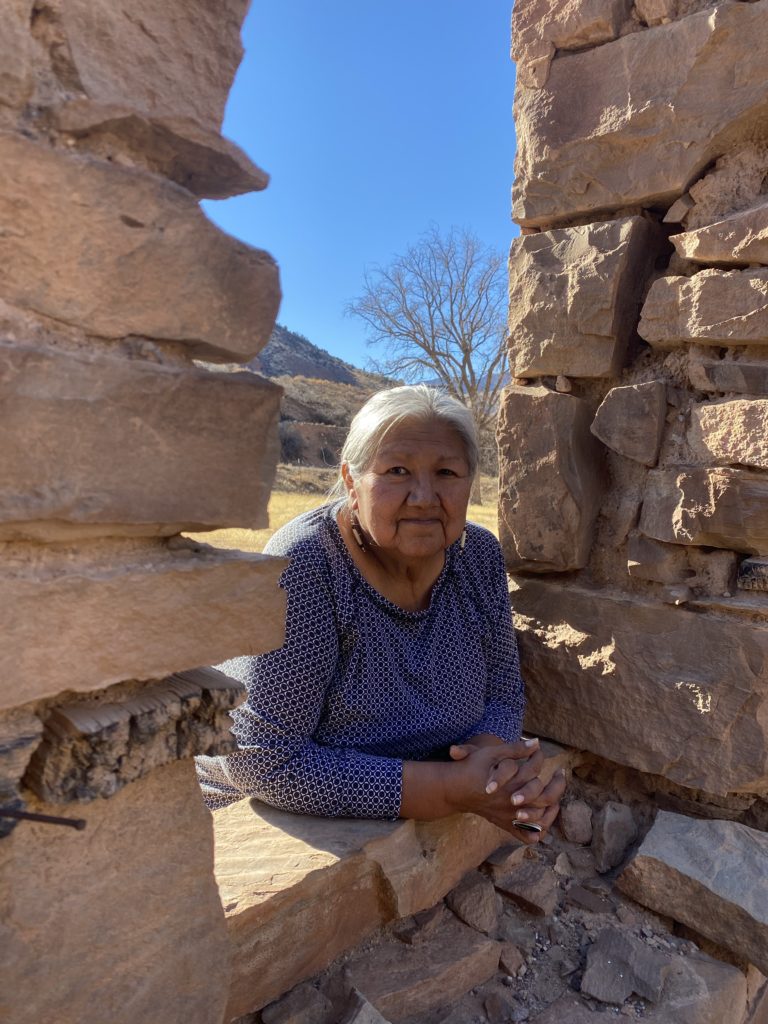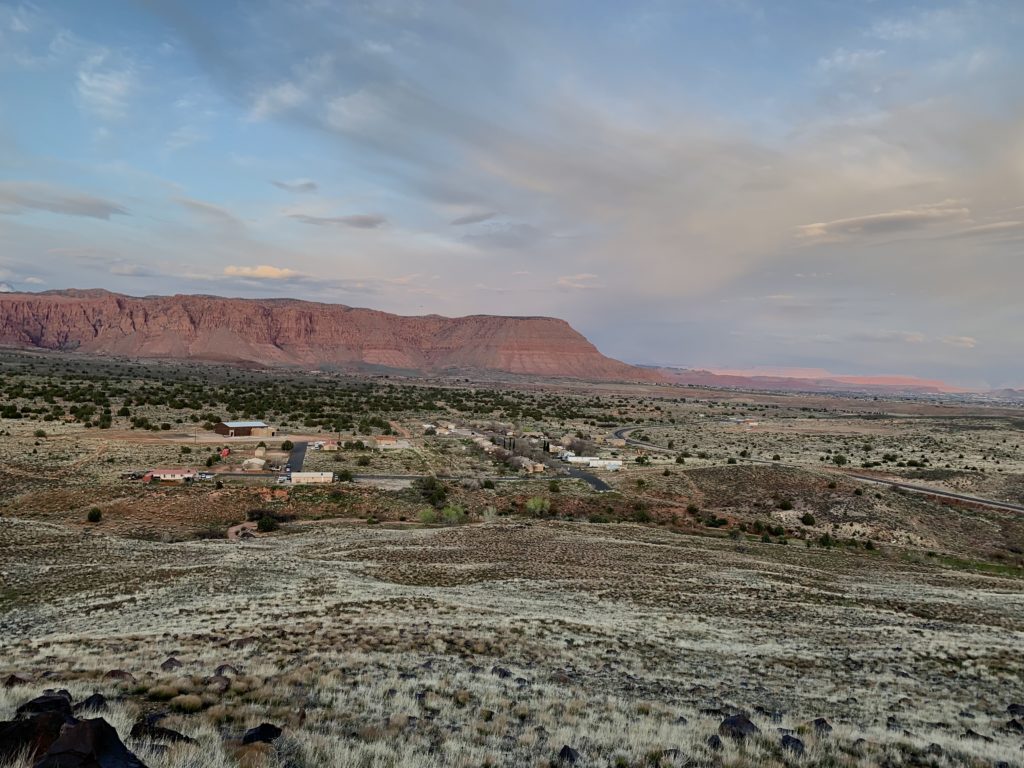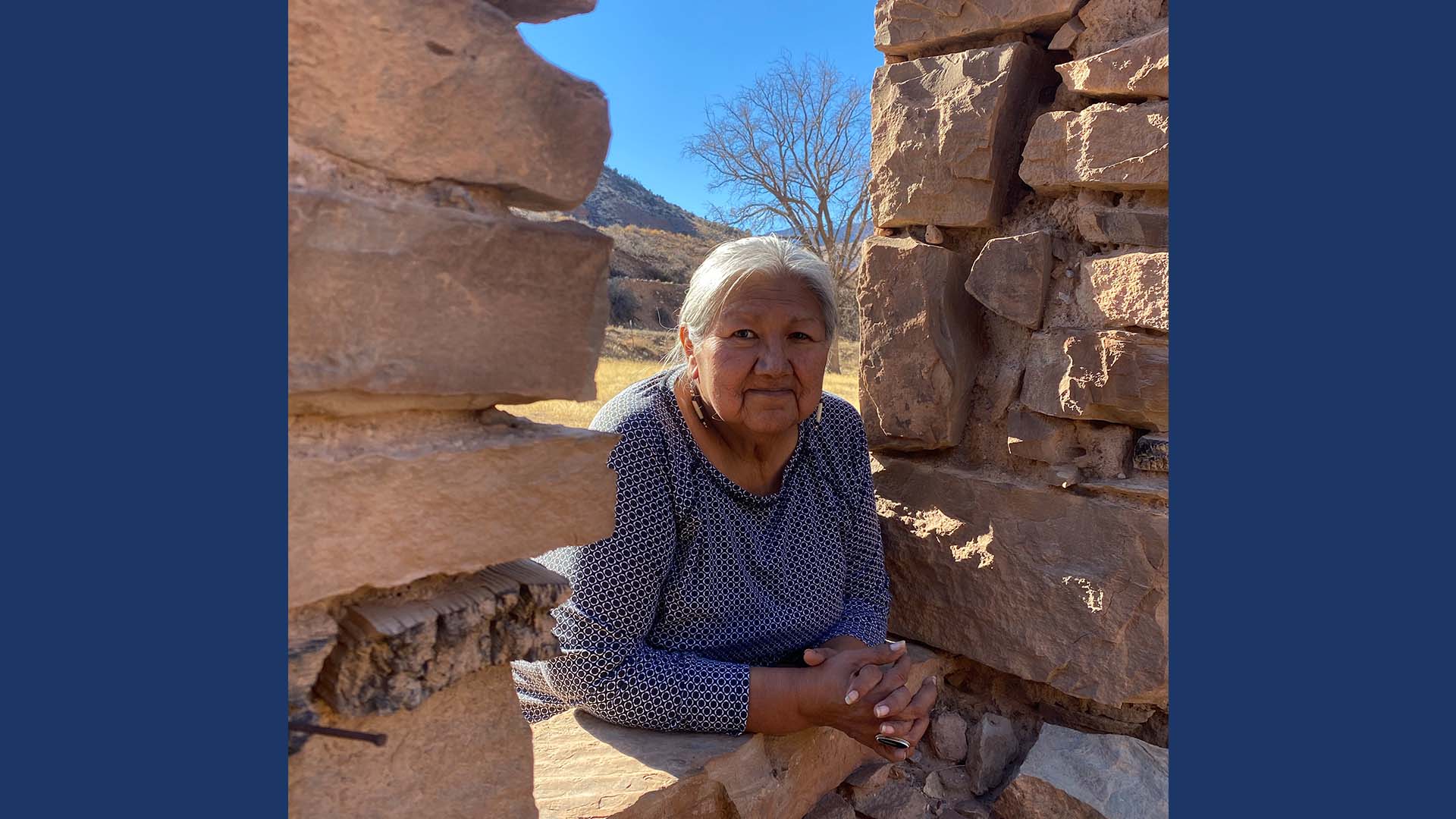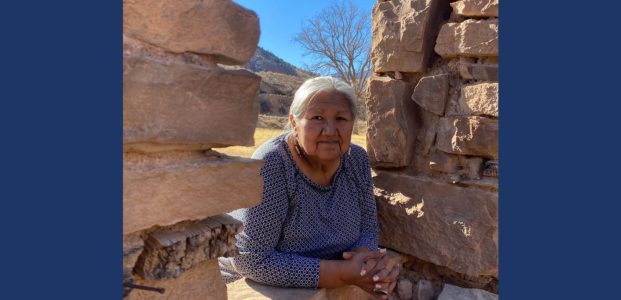Name
Karma Tillahash Grayman
Orphaned, Left Alone, Bare
Tribal Nation
Paiute Indian Tribe of Utah
and Shivwits Band of Paiutes
Speak

“I know my family story…my time was of termination and assimilation. This period in time was the greatest time of loss.” These are Karma Grayman’s words. Karma is a citizen of the Paiute Indian Tribe of Utah that is made up of five Paiute bands. Karma is an enrolled member of the Shivwits (See’veets) Band. All five bands had their own separate reservations and functioning tribal governments. In 1953, Congress passed the Termination Act that would extinguish federal recognition of a tribe, related federal services, and the reservation land base. In 1954, the four Paiute bands were terminated—the greatest time of loss.
By an Act of Congress in 1980 the five constituent bands of Paiute were federally recognized as the Paiute Indian Tribe of Utah. They have ten parcels of land totaling approximately 40,000 acres. Their traditional territory once included areas in four states—Utah, Nevada, Arizona, and California. Elders tell Karma that the land needs to hear their language and songs. When they travel to places they have been politically separated from, the elders offer prayers in their language. The land still recognizes them. Karma adds her prayers. Miraculously Karma held the language. She credits her grandfather Tony William Tillahash, who was determined that his seven children would speak and sing fluent Paiute. Karma speaks and she sings.
Like her grandfather, Karma wants to keep the language alive. She earned a bachelor’s degree in Elementary Education, taught school for nine years, and coordinated a Title VI Indian Education Program for fourteen years. Though retired, she teaches in the Paiute Language After School Program. Karma has been on the band council and the Culture Committee, and she tells us that she continues to be a mother, a grandmother, and a listener.
American Indian students spend most of their public-school years learning about everyone but their own people. Karma wants to change that. She knows the value of a strong and positive identity. She believes the children in her community have the right to study their own history, language, stories, and songs. She sees how it builds confidence and self-respect. Her heart sings when she sees young people wear their traditional regalia to celebrate a success. In her own words, “Our language and history have been put away. Now they need to be shared.”




